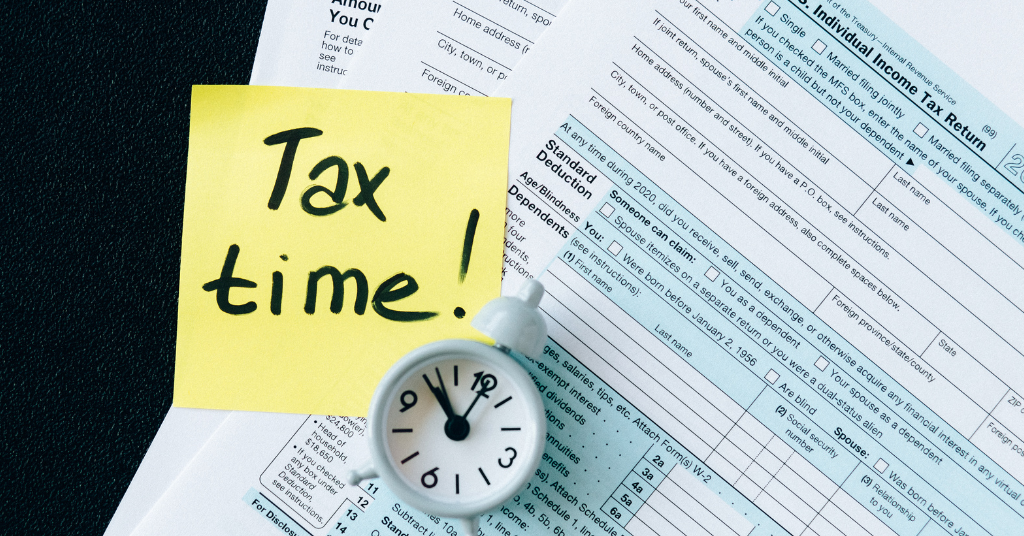

Maximize Your 2024 Refund: Tax Breaks You Might Be Missing
Category: Accounting
Most people have a general understanding of wills and their basic purpose. However, it is not uncommon for people to assume that wills and estate planning are more or less the same.
Although wills are often a key component of estate planning, a solid estate plan does much more than outlining the distribution of your belongings and assets upon your passing.
Wills do not necessarily cover everything. Depending on your circumstances and needs, your will alone may not be sufficient to ensure your last wishes get carried out.
Although it can be uncomfortable to think about what will happen after you pass away, a good, comprehensive estate plan is one of the best things you can leave for your loved ones. What’s more, it’s never too early to get started.
To discover the differences between a will and estate planning, whether or not you may need a simple will or a more extensive estate plan, and how to get started, read on.


Another common misconception is that estate planning is only for those with mansions, yachts, or large sums of financial assets. The truth is, almost everyone leaves behind an estate when they die; your “estate” is simply everything that you own. This can include:
A Last Will and Testament (a legal document that communicates your wishes for the distribution of your assets, who will manage the process, and who will care for your children) is an essential first step.
Yet, an estate plan can go even further to guide your loved ones regarding your financial affairs and medical care and can provide for the care and financial support of your spouse, minor children, or family members with special needs if you become incapacitated or die.
Not everyone needs an estate plan, and a will and testament are enough for some estates. It all depends on a few key factors.
One particularly significant life event can increase your need for an estate plan: the birth of a child. Although a will allows you to name a guardian to take custody of the child in the event of your incapacitation or death, an estate plan empowers you to appoint a conservator or guardian of the estate, who will help manage any assets your child will inherit.
Another factor to consider is the size of your estate. This may come down to a simple tax consideration: if the value of your estate exceeds the limit of the federal estate tax exclusion, you may want to create an estate plan to minimize your tax liability. When it comes to state estate taxes, your circumstances may vary according to your state of residence, so make sure you are familiar with what your state tax code requires.
Finally, another critical benefit of an estate plan is that it can help minimize the expense, delay, and loss of privacy that can come with the probate process.
Probate is the court‑monitored process for administering the estate of a decedent. To put it more simply, probate is the process of proving that a will is legally acceptable and appointing the executor or representative who will administer the estate.
The process includes:
An estate plan can simplify this process or even avoid it entirely in some cases by creating a revocable living trust — any assets placed in your trust will bypass the probate process.
Like revocable living trusts, estate plans are not just for the super-wealthy. Establishing a trust can offer many benefits, but they are not appropriate for every circumstance.
Here are some factors to consider:
If any of the above situations sound familiar, you may want to consider a revocable living trust; you can include trust provisions in a will document under the guidance of experienced legal experts (like us).
Making a will and considering using a trust are two critical steps in estate planning. Further documents you should consider drafting include:
Be sure you have also addressed your estate plan’s federal and state estate tax obligations (click here for 5 tips for federal estate tax planning in 2022).
You should also be sure to get your digital life in order. Listing all of your accounts, login usernames, and passwords, and designating a trusted person to access them, can be very helpful after you’re gone. While you may not think it’s important whether or not your executor can access your Facebook account, remember that much of our financial lives happen online these days.
Finally, make sure that you store all of your estate planning paperwork safely and that someone knows where and how to access it when the time comes.
There is no time like the present to get started with your estate planning. It can be a complex endeavor, and most people who create estate plans do so with the help of an attorney experienced in estate law.
Our team at Rosenberg & Chesnov stands ready to assist you in this process.
If you are a client and would like to book a consultation, call us at +1 (212) 382-3939 or contact us here to set up a time.
If you aren’t a client, why not? We can take care of your accounting, bookkeeping, tax, and CFO needs so that you don’t have to worry about any of them. Interested? Contact us here to set up a no-obligation consultation.
Interested in receiving updates in your mailbox? Check out our newsletter, full of information you can use. It comes out once every two weeks, and you can register for it below.


Category: Accounting


Category: Accounting


Category: Accounting
Send us a message and we will contact you as soon as possible.
Send us a message and we will contact you as soon as possible.
Jeff Coyle, CPA, Partner of Rosenberg Chesnov, has been with the firm since 2015. He joined the firm after 20 years of business and accounting experience where he learned the value of accurate reporting, using financial information as a basis for good business decisions and the importance of accounting for management.
He is a diligent financial professional, able to manage the details and turn them into relevant business leading information. He has a strong financial background in construction, technology, consulting services and risk management. He also knows what it takes to create organizations having built teams, grown companies and designed processes for financial analysis and reporting.
His business experience includes:
Creating and preparing financial reporting, budgeting and forecasting.
Planning and preparation of GAAP and other basis financial statements.
Providing insight on financial results and providing advice based on those results.
Jeff also has a long history of helping individuals manage their taxes and plan their finances including:
Income tax planning and strategy.
Filing quarterly and annual taxes.
Audit support.
General financial and planning advice.
Prior to joining the firm in 2015, Jeff was in the private sector where he held senior financial and management positions including Controller and Chief Financial Officer. He has experience across industries, including construction, technology and professional services which gives him a deep understanding of business.
Jeff graduated from Montclair State University, he is a CPA and member of the American Institute of Certified Public Accountants, New York State Society of Certified Public Accountants and New Jersey State Society of Public Accountants.
Jody H. Chesnov, CPA, Managing Partner of Rosenberg Chesnov, has been with the firm since 2004. After a career of public accounting and general management, Jody knows the value of good financials. Clarity, decision making, and strategy all start with the facts – Jody has been revealing the facts and turning them into good business results for more than three decades.
He takes a pragmatic approach to accounting, finance and business. His work has supported many companies on their path to growth, including helping them find investors, manage scaling and overcome hurdles. His experience and passion for business reach beyond accounting and he helps businesses focus on what the numbers mean organizationally, operationally and financially.
He has a particular expertise in early-stage growth companies. His strengths lie in cutting through the noise to come up with useful, out of the box, solutions that support clients in building their businesses and realizing their larger visions.
Prior to joining the firm in 2004, Jody was in the private sector where he held senior financial and management positions including General Manager, Chief Financial Officer and Controller. He has experience across industries, which gives him a deep understanding of business.
Jody graduated with a BBA in Accounting from Baruch College, he is a CPA and member of the American Institute of Certified Public Accountants and New York State Society of Certified Public Accountants.
In addition to delivering above and beyond accounting results, Jody is a member of the NYSCPA’s Emerging Tech Entrepreneurial Committee (ETEC), Private Equity and Venture Capital Committee and Family Office Committee.
He is an angel investor through the Westchester Angels, and has served as an advisor for many startup companies and as a mentor through the Founders Institute.